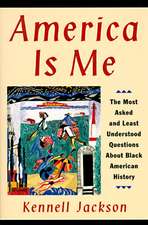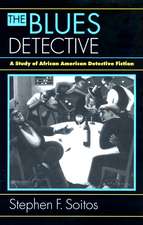Color by Number: Understanding Racism Through Facts and Stats on Children
Autor Art Muninen Limba Engleză Paperback – iun 2012
| Toate formatele și edițiile | Preț | Express |
|---|---|---|
| Paperback (1) | 229.82 lei 3-5 săpt. | |
| Taylor & Francis – iun 2012 | 229.82 lei 3-5 săpt. | |
| Hardback (1) | 995.01 lei 3-5 săpt. | |
| Taylor & Francis – iun 2012 | 995.01 lei 3-5 săpt. |
Preț: 229.82 lei
Nou
Puncte Express: 345
Preț estimativ în valută:
43.98€ • 45.80$ • 37.17£
43.98€ • 45.80$ • 37.17£
Carte disponibilă
Livrare economică 17 februarie-03 martie
Preluare comenzi: 021 569.72.76
Specificații
ISBN-13: 9781579226367
ISBN-10: 1579226361
Pagini: 136
Dimensiuni: 213 x 279 x 8 mm
Greutate: 0.25 kg
Ediția:New.
Editura: Taylor & Francis
Colecția Routledge
Locul publicării:Oxford, United Kingdom
ISBN-10: 1579226361
Pagini: 136
Dimensiuni: 213 x 279 x 8 mm
Greutate: 0.25 kg
Ediția:New.
Editura: Taylor & Francis
Colecția Routledge
Locul publicării:Oxford, United Kingdom
Public țintă
PostgraduateCuprins
Acknowledgments Foreword 1. Setting the Stage 2. Preventing Medicine. Health-Care Access 3. Race, Space, and Place. Environmental Justice 4. Criminals or Children?. Juvenile Justice 5. Back of the School Bus. K–12 Education 6. The Leaky Pipeline. Access to Higher Education 7. Next Steps as a Social Change Agent About the Author Index
Notă biografică
Art Munin has served as a diversity educator and consultant for institutions across the United States for 15 years through his company Art Munin Consulting (artmunin.com). He currently serves as Associate Vice Chancellor and Dean of Students at the University of Wisconsin-Oshkosh. Munin has coauthored chapters in the books Closing the Opportunity Gap: Identity-Conscious Strategies for Retention and Student Success and Handbook for Student Leadership Development. His first book is Color by Number: Understanding Racism Through Facts and Stats on Children. As a complement to this work, he has served in several capacities through NASPA, including the chair of the AVP Steering Committee, AVP Institute faculty, associate editor for Journal of Student Affairs Research and Practice, the Civic Learning and Democratic Engagement Initiative, and the regional conference planning committee.
Timothy J. Wise Tim Wise, whom philosopher Cornel West calls, “A vanilla brother in the tradition of (antiracism and antislavery fighter) John Brown,” is among the most prominent anti-racist writers and educators in the United States. Wise, who was named one of “25 Visionaries Who are Changing Your World,” by Utne Reader in 2010, has spoken in all 50 states of the U.S., on over 800 college and high school campuses, and to community groups across the nation. He has also lectured internationally in Canada and Bermuda on issues of comparative racism, race and education, racism and religion, and racism in the labor market
Timothy J. Wise Tim Wise, whom philosopher Cornel West calls, “A vanilla brother in the tradition of (antiracism and antislavery fighter) John Brown,” is among the most prominent anti-racist writers and educators in the United States. Wise, who was named one of “25 Visionaries Who are Changing Your World,” by Utne Reader in 2010, has spoken in all 50 states of the U.S., on over 800 college and high school campuses, and to community groups across the nation. He has also lectured internationally in Canada and Bermuda on issues of comparative racism, race and education, racism and religion, and racism in the labor market
Recenzii
"Munin, (social justice, Loyola U. Chicago) compiles facts and statistics about children to make evidence-based, research-driven arguments that illustrate the chronic and pervasive nature of racism. He draws on research from a variety of disciplines and government agencies (mostly from 2000 on) to present statistics through tables, charts, correlations, percentages, and description of health and health care, the health effects of pollution and other poisons, juvenile justice, primary and secondary education, and barriers to access and success in higher education, ending with discussion of social change."
Book News, Inc
This book is very approachable, meaning that the information and data in it are easy to understand and reference. I would use this text as a supplemental book to support many of my comments and statements that support or refute information that I read in textbooks or hear from other sources attempting to suppress oppressed voices by using “data” to contradict what the oppressed are experiencing.
The clear and understandable tables help those who are not “academics” process how our society has not supported the “have nots”. There is a connection of theory to practice using social justice literature and researchers such as Paulo Freire and Gloria Ladson-Billings. Each chapter has a “next steps for the reader” section which is ingenious. When I teach my students about social justice, oppression, racism, and sexism they leave the class feeling overwhelmed and helpless. The next steps section gives the reader an opportunity to continue reading, studying, and fighting for social justice. There are no excuses for reading the chapter/book and saying “this is bigger than me, I cannot be a change agent”.
Dr. Munin has noted the critical issues facing people of color in our society today. His selection of chapter topics is what make this book unique and each area discusses concerns that affect the livelihood of marginalized people in the United States. Each chapter and the issues presented segue into the next critical agenda item. For example, Munin shares the plight of poor health care for people of color and children and then he moves into how a toxic environment in communities that consist of the “have nots” continue to kill them physically and mentally.
Overall I really enjoyed reading this book and the data (numbers) provided on people of color providing a staggering look at the overwhelming issues our society have created with racism being central to the reason why it is difficult to move forward. The quote by Frederick Douglas in the final chapter summed up all the data quite succinctly, It is easier to build strong children than to repair broken [women and] men. - Frederick Douglass
Simply put, socialized biased behaviors are difficult to transform, however being armed with stories and data may help persuade some that things need to change if we are going to save the next generation of children of color. I hope that everyone is willing to be a change agent after reading this book.
Mary Howard-Hamilton, Holmstedt Distinguished Professor, Higher Education Program,
Indiana State University
"To have a work like this which takes as its central task educating a public awash with innumeracy –and especially when it comes to the application of numbers to difficult and contentious political and social issues – is a literary and ideological Godsend. Although I doubt its contents will matter much to those with a firmly entrenched commitment to racist and reactionary ideologies (they will need their own epiphanies, the likes of which rarely emerge from the mere presentation of facts, no matter how impressively arrayed), to those with open minds and a quest for truth, these contents could make all the difference.
For those who haven't given much thought to race matters, this volume could serve as an inoculation against the twisted political siren song of the far-right, providing sufficient knowledge so as to weaken the appeal of those who would manipulate their racial fears, anxieties and insecurities, or try and deny the reality of racial inequality so as to push a colorblind – and therefore, injustice-blind – agenda. And for those already committed to racial equity and justice, the contents herein could be even more important: providing us with the factual information needed to go forth and mobilize others to the cause, not to mention reminding us of just how important is the task which lay ahead.
I welcome this addition to the literature already extant on race and racism. It is long overdue."
Tim Wise, Author, White Like Me: Reflections on Race from a Privileged Son, and Dear White America: Letter to a New Minority
"This is a powerful social justice tool. The book provides the reader with the necessary numbers and information needed to be a more competent and confident advocate for equity and justice in the 21st century."
Eddie Moore, Jr., Ph.D., Founder/Program Director, The White Privilege Conference
Book News, Inc
This book is very approachable, meaning that the information and data in it are easy to understand and reference. I would use this text as a supplemental book to support many of my comments and statements that support or refute information that I read in textbooks or hear from other sources attempting to suppress oppressed voices by using “data” to contradict what the oppressed are experiencing.
The clear and understandable tables help those who are not “academics” process how our society has not supported the “have nots”. There is a connection of theory to practice using social justice literature and researchers such as Paulo Freire and Gloria Ladson-Billings. Each chapter has a “next steps for the reader” section which is ingenious. When I teach my students about social justice, oppression, racism, and sexism they leave the class feeling overwhelmed and helpless. The next steps section gives the reader an opportunity to continue reading, studying, and fighting for social justice. There are no excuses for reading the chapter/book and saying “this is bigger than me, I cannot be a change agent”.
Dr. Munin has noted the critical issues facing people of color in our society today. His selection of chapter topics is what make this book unique and each area discusses concerns that affect the livelihood of marginalized people in the United States. Each chapter and the issues presented segue into the next critical agenda item. For example, Munin shares the plight of poor health care for people of color and children and then he moves into how a toxic environment in communities that consist of the “have nots” continue to kill them physically and mentally.
Overall I really enjoyed reading this book and the data (numbers) provided on people of color providing a staggering look at the overwhelming issues our society have created with racism being central to the reason why it is difficult to move forward. The quote by Frederick Douglas in the final chapter summed up all the data quite succinctly, It is easier to build strong children than to repair broken [women and] men. - Frederick Douglass
Simply put, socialized biased behaviors are difficult to transform, however being armed with stories and data may help persuade some that things need to change if we are going to save the next generation of children of color. I hope that everyone is willing to be a change agent after reading this book.
Mary Howard-Hamilton, Holmstedt Distinguished Professor, Higher Education Program,
Indiana State University
"To have a work like this which takes as its central task educating a public awash with innumeracy –and especially when it comes to the application of numbers to difficult and contentious political and social issues – is a literary and ideological Godsend. Although I doubt its contents will matter much to those with a firmly entrenched commitment to racist and reactionary ideologies (they will need their own epiphanies, the likes of which rarely emerge from the mere presentation of facts, no matter how impressively arrayed), to those with open minds and a quest for truth, these contents could make all the difference.
For those who haven't given much thought to race matters, this volume could serve as an inoculation against the twisted political siren song of the far-right, providing sufficient knowledge so as to weaken the appeal of those who would manipulate their racial fears, anxieties and insecurities, or try and deny the reality of racial inequality so as to push a colorblind – and therefore, injustice-blind – agenda. And for those already committed to racial equity and justice, the contents herein could be even more important: providing us with the factual information needed to go forth and mobilize others to the cause, not to mention reminding us of just how important is the task which lay ahead.
I welcome this addition to the literature already extant on race and racism. It is long overdue."
Tim Wise, Author, White Like Me: Reflections on Race from a Privileged Son, and Dear White America: Letter to a New Minority
"This is a powerful social justice tool. The book provides the reader with the necessary numbers and information needed to be a more competent and confident advocate for equity and justice in the 21st century."
Eddie Moore, Jr., Ph.D., Founder/Program Director, The White Privilege Conference
Descriere
This book is intended as a fact-based, antiracism text for diversity and social justice courses, and as a resource for diversity and social justice educators as they craft their race, racism, and White privilege curricula.















